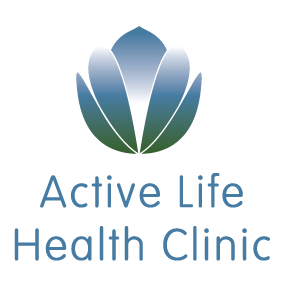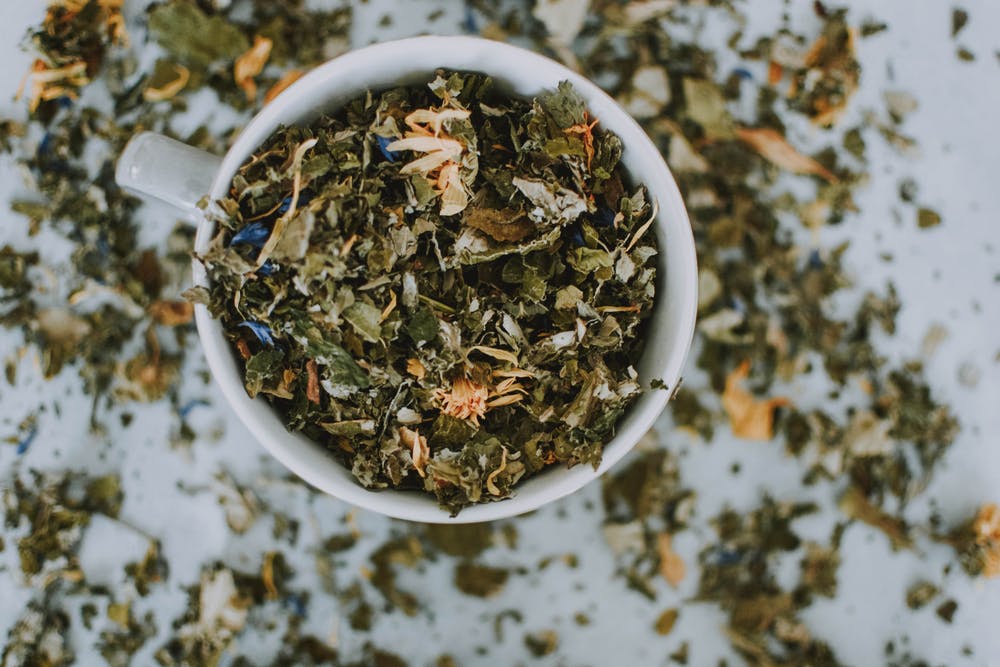I get it. The Chinese herbal formulas I normally make for my patients can taste awful. They aren’t designed to be delicious. They are customized to improve your health, and I will warn you that you may curse me as you take your first sips. But, the good news is that you’ll feel better! Plus, the taste usually becomes less of an issue (and you may even like it, as some of my patients do) as your body recognizes the benefits. This is a cartoon I made:
If you’ve had one of my customized herbal formulas before, you may identify with this.
While I am still doing customized herbal powder formulas in my practice, I’ve also been able to start carrying some Chinese herb formula tablets. If your TCM diagnosis pattern happens to fit one of the more classical formulas, I may prescribe tablets instead, perhaps more than one formula if your pattern is more complex.
You see, Traditional Chinese Medicine (TCM) practitioners don’t prescribe formulas based primarily on symptoms or diseases. Instead, we prescribe and dispense herbal formulas based on you–your personal combination of symptoms, illnesses, constitution, current condition, and health goals. So, there is not a “migraine formula,” “IBS formula,” or “eczema formula.” We have to figure out, “what are your patterns of imbalance?” and treat that. For example, when addressing someone with IBS-D (diarrhea as the main symptom of IBS), we might based an herbal prescription on one of the following, quite different, formulas:
- Shen Ling Bai Zhu San
- Fu Zi Li Zhong Wan
- Xiao Yao San
- Huang Lian Jie Du Wan
- Tong Xie Yao Fang
Here’s the thing. This small sampling of common TCM formulas can all treat IBS-D, but each one can only treat IBS-D for the right person with the TCM diagnostic pattern that matches the herbal formula’s actions.
So, when I’m asked (sometimes by other healthcare providers), “what herbal formula do you recommend for IBS-D [or migraines or eczema or SIBO or anxiety, etc.]?”, the answer is that it depends on the individual and I need to do an assessment.
The good news is that TCM herbal formulas can, as a result, treat a wide variety of symptoms and illnesses, even ones that are seemingly new or rare. That’s because it’s the person we treat, not the disease.
Chinese herbs in everyday life
Okay, so prescribing TCM herbal formulas is complex. But, that doesn’t mean you can’t also use some of the herbs in your everyday life. You can! Have you eaten ginger, garlic, turmeric, cardamom, cinnamon, onions, green tea, dates, or goji berries? Then you’ve eaten Chinese herbs!
In Chinese culture, adding less food-like herbs like astragalus (huang qi), tang kuei or angelica root (dang gui), ginseng (ren shen), and chrysanthemum flowers (ju hua) to soups or teas is commonplace. When I was doing my internship for TCM in China, I noticed that many of the doctors I was learning from were drinking hot water with goji berries and chrysanthemum flowers. The goji berries were for energy (“building Blood and supporting the TCM Liver and Kidneys”) and the chrysanthemum flowers were cooling because it was super hot out. Both also support the eyes and vision. And the taste of the resulting tea? Refreshing and light.
So, TCM herbs can be tasty and enjoyable.
On March 12th, I’m doing a talk on easy Chinese herbs to incorporate into your life. Kyth + Kyn is a modern Chinese herbal shop that will be offering samplings of Chinese herbal teas at this lecture, so come check it out! Register for it here soon, as space is limited.




Recent Comments